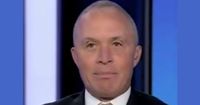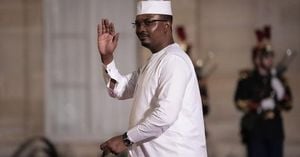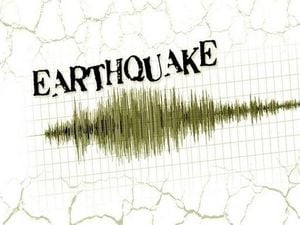The debate over whether former President Donald Trump deserves the Nobel Peace Prize has erupted once again, fueled by recent op-eds, political commentary, and a swirl of opinions from both sides of the aisle. The discussion is more than just a question of awards and accolades—it’s a referendum on Trump’s legacy, his impact on global stability, and the very meaning of peace in a tumultuous world.
The latest round of arguments began with a pair of op-eds published in the Globe on August 14 and 15, 2025. Heather Mac Donald’s piece, "Trump is right to send the National Guard to Washington," set the stage, but it was John J. Miller’s "Trump deserves the Nobel Peace Prize" that truly lit the fuse. Miller, director of the Dow Journalism Program at Hillsdale College, argued that Trump’s foreign policy achievements, particularly the 2020 Abraham Accords, merited nothing less than the highest honor for peacemaking.
But not everyone is buying it. As Richard Feinberg of Boston wrote in a letter published by the Globe, "While the 2020 Abraham Accords were a small step in the right direction, they remain far from delivering peace to the Middle East, as President Trump continues to proclaim. That goal may actually be farther away than ever." Feinberg pointed out that none of the four nations that joined the Abraham Accords had ever been at war with Israel, except for Morocco’s minor involvement in the 1973 Yom Kippur War. The ongoing conflict between Israel and Hamas, he argued, now threatens to unravel even the limited cooperation those agreements achieved.
Feinberg was also critical of Miller’s comparisons between the Abraham Accords and Israel’s historic 1978 peace deal with Egypt. "The rest of his argument relies on a lot of maybes," Feinberg wrote, referencing Miller’s speculation that Saudi Arabia or other Arab countries might follow suit, or that Trump could somehow broker peace in Ukraine. Feinberg concluded with a pointed reminder about the Nobel Peace Prize: "A true promoter of world peace is guided by more noble intentions, not purely so that he can add ‘Peace Prize’ to his resume. Trump doesn’t even try to hide his egotistical obsession with this pursuit, recently stating, ‘I should’ve gotten it four or five times.’"
Indeed, Trump’s own words have become a flashpoint in the controversy. He has publicly declared, "I should’ve gotten it four or five times," a sentiment that many see as emblematic of his brash and self-promoting style. For some, this is simply Trump being Trump; for others, it’s further evidence that he seeks the Nobel not for peace, but for personal glory.
The events of January 6, 2021, loom large in the minds of Trump’s critics. Tobin Wirt of Sandwich, writing in the Globe, argued, "The attempted coup on Jan. 6, 2021, at Trump’s urging would disqualify him from ever getting near any prize, especially one with ‘peace’ attached to it." Wirt went on to accuse Trump of "showing up at the last minute to claim ownership of resolutions of peace negotiations," and warned that awarding the Nobel Peace Prize to Trump would "lose vast amounts of credibility" for the committee. "Trump’s thirsty attempts to get attention and crassly continuing to ask that he receive the Nobel are an embarrassment to America and to the Nobel Peace Prize," Wirt concluded.
Other critics have pointed to Trump’s domestic actions as further evidence against his candidacy. Katharine Gregg of Amherst wrote, "To think that Donald Trump can bring peace to the world is ludicrous. Maybe he has brought stability (but the proof remains in how long it lasts) in Africa and the Middle East, but his waffling commitment to Ukraine and his tacit support of Israeli Prime Minister Benjamin Netanyahu’s actions in Gaza disqualify him completely." Gregg also criticized Trump’s use of tariffs and his "bullying of our neighbors," adding, "Peace begins at home. The imposition of the National Guard in cities is not a peaceful action. Trump wants the Peace Prize as one more personal trophy. He hasn’t earned it."
Yet, the case for Trump is not without its high-profile supporters, even among those not typically aligned with him. On August 19, 2025, former Democratic Representative Harold Ford Jr. of Tennessee surprised many by stating on Fox News’ "The Five" that if Trump succeeds in ending the Russia-Ukraine war, "he would absolutely deserve" the Nobel Peace Prize. Ford, who served in Congress from 1997 to 2007, remarked, "I give President Trump tremendous credit for where we are. And if he is able, again, to engineer this deal—we’ve been saying for weeks on this show—I would be the first— I would hope you would invite me down to the White House when the president is awarded the Nobel Peace Prize, because he would absolutely deserve it."
Ford’s comments were echoed by comedian and talk show host Bill Maher, a longtime critic of Trump, who nonetheless acknowledged on HBO’s "Real Time with Bill Maher" that there is "good in Donald Trump." Maher said, "He really does not like war," and credited Trump with helping settle conflicts between Thailand and Cambodia, Rwanda and the Congo, India and Pakistan, and Armenia and Azerbaijan. According to Maher, "He got involved in all of them." While Maher’s remarks were delivered with his trademark sarcasm, they nonetheless struck a chord with viewers accustomed to seeing Trump vilified in liberal circles.
Meanwhile, Frank Kelley of Braintree offered a more sardonic take, noting the "bitter irony" of Trump seeking a prize named for the inventor of dynamite. "Given the dystopian era Trump has spawned, he’s likely to achieve his prize but not the peace," Kelley quipped in the Globe.
Amidst the swirl of opinion, some facts remain uncontested. The 2020 Abraham Accords did normalize relations between Israel and four Arab nations, though none had a history of direct conflict with Israel, save for Morocco’s brief involvement decades ago. There is also a preliminary peace deal between the Democratic Republic of Congo and Rwanda, and Trump has been credited, at least by some, with helping to settle or ease tensions in multiple international hotspots.
But the world is far from peaceful. The war between Israel and Hamas continues to rage, threatening the durability of the Abraham Accords. Trump’s critics point to his inconsistent stance on Ukraine and his support for controversial leaders as evidence that his approach to peace is, at best, transactional and, at worst, destabilizing. Supporters, meanwhile, argue that results matter more than style, and that Trump’s willingness to engage with adversaries has yielded tangible—if imperfect—progress.
The Nobel Committee, of course, has the final say. As the debate rages on, one thing is clear: the question of whether Donald Trump deserves the Nobel Peace Prize is about more than just a medal. It’s a mirror reflecting the deep divisions—and the lingering hopes—of a world still searching for peace.




